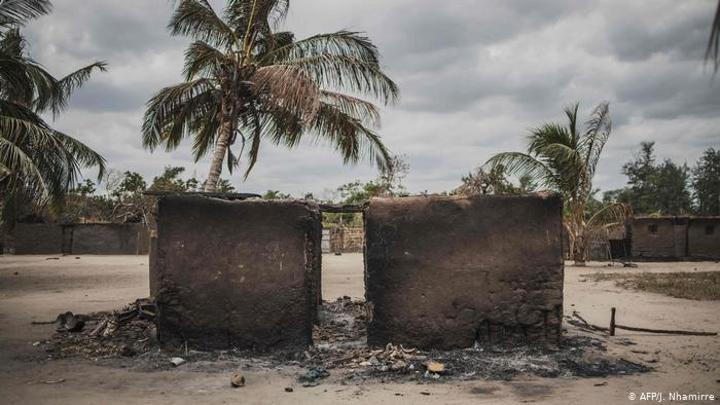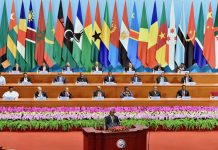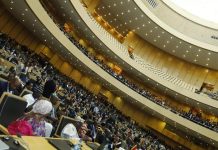Africa-Press – Mozambique. Analysts told Lusa on Monday (October 4) that the “structural and systemic” character of social, economic and political dissatisfaction in Cabo Delgado explains the duration of armed violence in the province since its outbreak four years ago.
“The factors of the uprising and insurgency in Cabo Delgado are structural and systemic and are based on social, economic and political exclusion. Therefore, stopping violence was never to be achieved as quickly as many, perhaps, might have expected,” João Feijó told Lusa.
Feijó is a researcher at the Rural Environment Observatory (OMR), and has studied the armed violence in Cabo Delgado, concluding that the causes underlying the armed rebellion predate its start in October 2017 and in fact date back to colonial times.
“The communities of Cabo Delgado have lived with a feeling of abandonment and marginalization by the state since colonial times, and that feeling continued after independence,” he says.
The outbreak of armed violence represented only the boiling over of a revolt that had been dormant, as a result of the harnessing of the frustrations of communities by forces of violent extremism backed with jihadist ideology.
Concerning the fact that the insurgency in Cabo Delgado was entering its fourth year with armed groups losing ground to the joint forces of the governments of Mozambique, Rwanda and the Southern African Development Community (SADC), Feijó stressed that the military defeat of the rebels would not remove the root causes of violence in the province.
“Military action and advance are important, because they capture territory and limit the initiative of insurgents, but if they are not accompanied by the creation of economic opportunities, youth employment, education, professional technical training and space for dialogue and democratic participation, we will have a situation of prolonged and intermittent armed conflict,” Feijó warned.
Muhamad Yassine, professor of International Relations at the Joaquim Chissano University, a state institution, considered that one of the factors behind the spread of the insurgency was the government’s denial of the socioeconomic roots of the population’s revolt in the province.
“The government opted for criminalising and demonising the causes behind the insurgency, rejecting the hypothesis that feelings of social and economic exclusion among the northern populations could have ignited the violence,” Yassine says.
The authorities, he continued, never accepted the political insubordination component of armed violence in Cabo Delgado, fuelled by a feeling of social marginalisation, opting for an approach to combat the terrorist dimension of the problem, which integrates elements of jihadist ideology.
“Studies of violent extremism in many territories around the world where this phenomenon occurs show that poverty, state violence, unemployment and political intolerance are fertile ground for recruiting disaffected parts of the population into the fundamentalist ranks,” Yassine noted.
For Yassine, the population’s revolt against the state in Cabo Delgado can be seen in the relative acceptance and complicity of some communities in relation to the armed groups, as well as by the infiltration of insurgents into the Defence and Security Forces (FDS), resulting in demoralisation of the army.
“No wonder many FDS members did not sympathise with the war in Cabo Delgado, because they also belong to communities that feel marginalised by the same state,”Yassine said.
The international relations expert says the current success in the fight against armed groups in Cabo Delgado is the result, in part, of the Rwandan government forces’ “emotional distance” regarding the insurgents and the communities in the province.
“Since it is a foreign force with no affective connection with the problems behind the insurgency, the Rwandan military may be applying the policy of ‘zero tolerance’, which, from a purely military point of view, can be very effective,” he notes.
Adriano Nuvunga, political scientist and director of the Centre for Democracy and Development (CDD), a Mozambican civil society organization, also considers the discontent rife in Cabo Delgado communities as “the fertilizer” of armed violence in the province, warning of the “illusion of a military victory”.
“Cabo Delgado and northern Mozambique, in general, need significant social and economic development, because if that doesn’t happen, the insurgency could continue for a longer time,” he said.
If extreme poverty, unemployment, despair, social, economic and political exclusion persist, the population of Cabo Delgado will remain vulnerable to manipulation by violent extremism, Nuvunga noted.
“There is poverty across the country, but Cabo Delgado’s situation is very particular, because local communities live with images of multi-million investment in extractive industry projects and hear every day that their province is very rich in natural resources,” the director of the CDD remarked.
In parallel with ongoing military actions, the end of the insurgency requires that populations, including those displaced by war, be treated with dignity and receive the necessary humanitarian assistance, he continued.
Nuvunga noted that the ease with which armed groups recruited young people into their ranks is proof of the “anti-state feeling” prevailing in conflict zones in Cabo Delgado.
Cabo Delgado province is rich in natural gas, but has been terrorised since 2017 by armed rebels, with some attacks claimed by the Islamic State extremist group.
The conflict has already caused more than 3,100 deaths, according to the ACLED conflict registration project, and more than 817,000 displaced, according to Mozambican authorities.
Since July, an offensive by government troops with the support of Rwanda, which was later joined by the Southern African Development Community (SADC), has increased security, recovering several areas from rebel control, including the town of Mocímboa da Praia, which had been occupied since August, 2020.






